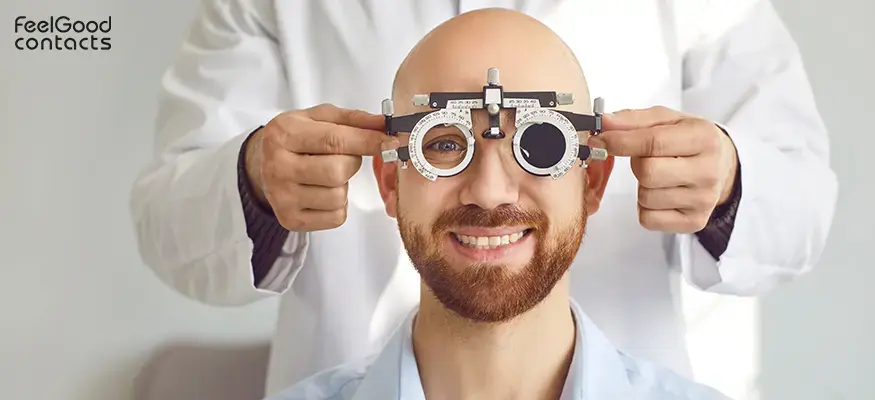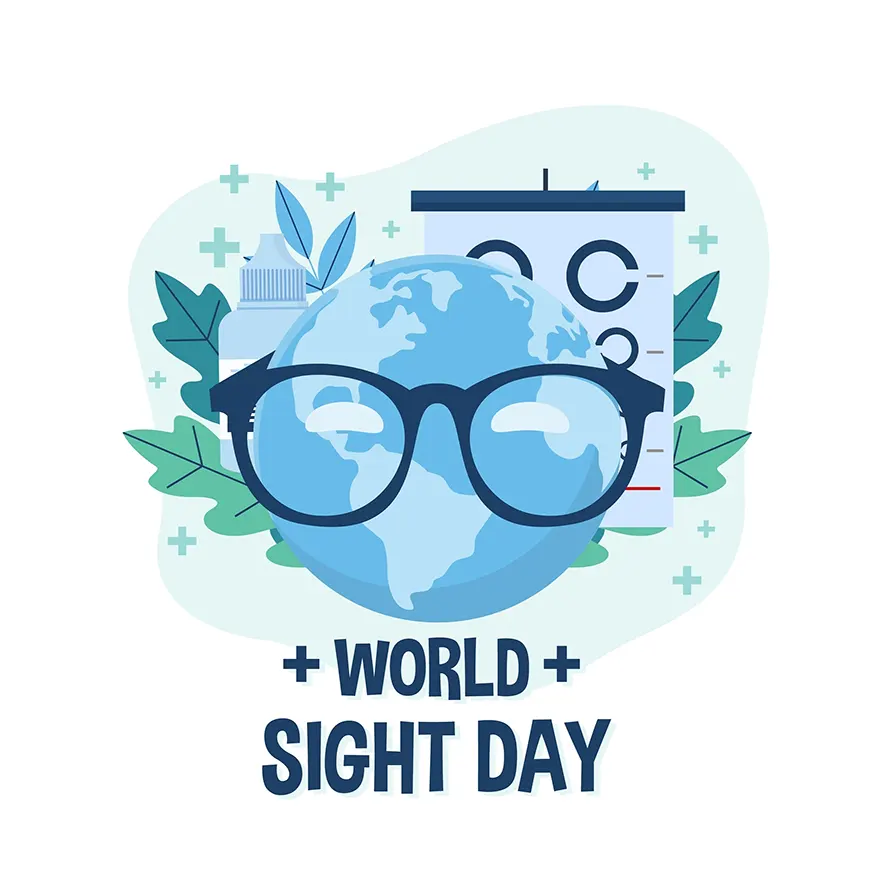In the UK alone, it’s estimated that over 4.4 million people are living with diabetes. That's a staggering number, and it's crucial to raise awareness about how this condition can affect vision. While managing blood sugar levels becomes vital for many, eye health often takes a backseat, potentially leading to devastating consequences.
Types of diabetes
There are two main types of diabetes. Type 1 is when the body doesn't produce insulin and requires daily injections. Type 2 is when the body becomes insulin-resistant or doesn't produce enough insulin.
Diabetes and eyes: how diabetes can affect your eyes
Diabetes disrupts the body's ability to regulate blood sugar levels. Over time, chronically high blood sugar can damage delicate blood vessels throughout the body, including those in the retina and the light-sensitive layer at the back of the eye. This damage can lead to various eye conditions, including:
- Diabetic retinopathy: Diabetic retinopathy is a serious problem caused by diabetes. It happens when high levels of blood sugar damage the small blood vessels in the retina, the light-sensitive tissue at the back of the eye. If not found and treated, this problem can lead to significant vision problems and even blindness. It is especially worrying because it is the main cause of blindness among working-age adults. The weakening of blood vessels in the retina can cause fluid and blood to leak, leading to more damage and vision loss.
- Diabetic macular edema: Macular edema is when blood vessels leak into the macula, a vital part of the retina. This causes the macula to swell, making vision blurry. Many different conditions can lead to macular edema, but diabetic retinopathy is the most common. In people with diabetes, diabetic retinopathy can cause diabetic macular edema (DME), which makes vision problems worse.
- Glaucoma: Glaucoma is a group of eye diseases that can harm the bundle of nerves connecting the eye to the brain, known as the optic nerve. Diabetes increases the risk of developing glaucoma. If not found and treated early, glaucoma can cause vision loss and blindness.
- Cataracts: Prolonged high blood sugar (blood glucose) levels can lead to structural changes in the lens of the eye, which in turn can hasten the development of cataracts.
How to prevent diabetes and protect your eyesight

While type 1 diabetes cannot be prevented, the good news is that type 2 diabetes is largely preventable. There are many lifestyle changes that can help you prevent it and reduce the risk of eye complications that come with it.
Maintain a healthy weight
Being overweight or obese significantly increases the risk of developing type 2 diabetes. Maintaining a healthy weight could reduce your risk.
Eat a balanced diet
To effectively manage your blood sugar levels, it is advisable to prioritise the consumption of a variety of fruits such as berries, apples, and oranges, along with an assortment of vegetables like leafy greens, carrots, and bell peppers. Additionally, incorporating whole grains such as quinoa, brown rice, and oats into your diet can contribute to better blood sugar management.
Exercise regularly
Regular exercise sessions and physical activity, such as brisk walking, running, swimming, or cycling, can effectively help manage blood sugar levels. This can contribute to overall health improvement, including better weight management, enhanced cardiovascular health, and increased insulin sensitivity. Regular exercise can play a key role in reducing the risk of developing type 2 diabetes.
Don't smoke
Smoking significantly raises the likelihood of developing type 2 diabetes, which can lead to serious health complications such as heart disease, kidney damage, and nerve damage. In addition, smoking increases the risk of eye diseases such as cataracts, age-related macular degeneration, and diabetic retinopathy, which can potentially lead to vision loss.
Reduce alcohol consumption
By limiting the amount of alcohol you consume, you can lower your risk of developing type 2 diabetes. This is because excessive alcohol consumption can lead to weight gain and an increase in insulin resistance, both of which are risk factors.
Manage stress
Chronic stress can raise blood sugar levels. Stress management will not only help you to reduce the risk of high sugar levels but also ensure better mental health.
How regular eye tests can help detect the early signs of diabetes

Regular eye exams are crucial for early detection of both diabetes and diabetes-related eye conditions. If you have diabetes, it is important to schedule a comprehensive eye exam at least once a year or more frequently if recommended by your doctor. During the exam, the eye care professional will check for signs of diabetic retinopathy, glaucoma, and cataracts, as well as assess the overall health of your eyes. Early detection and treatment of these eye conditions can significantly reduce the risk of vision loss and help maintain good eye health. Whether you wear contact lenses, prescription glasses, or have perfect vision, it is important for everyone to have regular eye tests.
Disclaimer: The advice in this article is for informational purposes only and does not replace medical care or an in-person check-up. Please check with an eyecare professional before purchasing any products or remedies. For information on our article review process, please refer to our Editorial Policy.
Disclaimer: The advice and suggestions in this blog are for informational purposes only and are not a substitute for medical care. Before trying any products or remedies, consult with an eye care professional. See our Editorial Policy for details on how we review our blog.

























